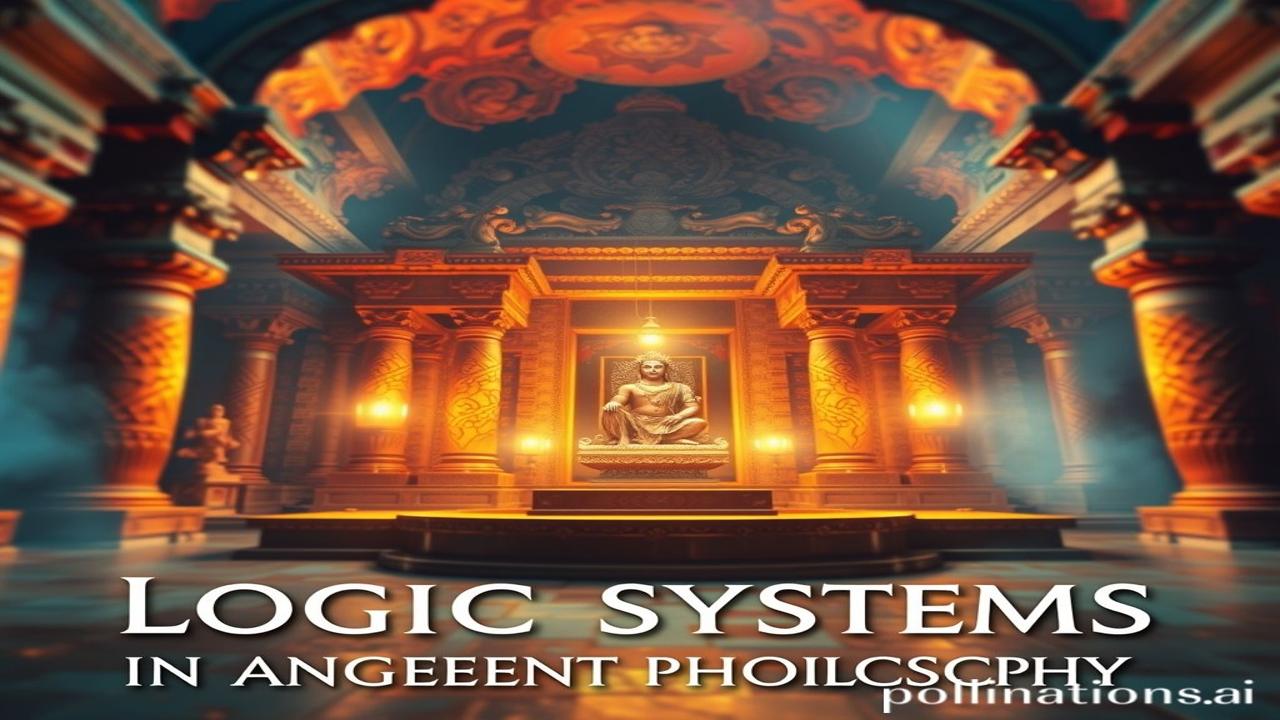Waqt Ki Dastak: Ancient Indian Philosophy Aur Logic Ke Raaz
Kabhi socha hai, jab Mahabharat ka yudh chal raha tha, ya Gautam Buddha apna pehla sermon de rahe the, tab logon ke dimaag mein kaise vichar chal rahe the? Kya logic, reasoning, aur satya ki khoj us zamane mein bhi utni hi zaroori thi jitni aaj hai? Waqt ki dhool mein chhupi hai ek aisi kahani, jismein ancient India ne duniya ko dikhaya, ki sochne ka bhi ek art hota hai.
Itihasik Panorama: Logic Systems In Ancient India
What exactly are we talking about when we say “Logic Systems in Ancient India”? Well, it’s about the systematic and rigorous ways ancient Indian philosophers explored reasoning, inference, and knowledge. It’s not just about making arguments; it’s about understanding how we make arguments and whether those arguments are valid.
This intellectual journey began around the 6th century BCE and continued for centuries, evolving and branching into different schools of thought. Think of it like a tree with roots in the Vedas, branching out into Nyaya, Vaisheshika, Buddhism, Jainism, and many other philosophies.
Why is this important? Because these systems weren’t just abstract theories. They shaped the way people thought about everything – from morality and ethics to politics and religion. They provided tools for analyzing the world and understanding our place in it. They influenced debates, discussions, and ultimately, the course of Indian history.
Zamini Sach: Gurukul, Baatein, Aur Satya Ki Khoj
Imagine a gurukul, nestled in a dense forest. The air is thick with the scent of sandalwood and the murmur of students reciting verses. A young apprentice, let’s call him Arjun, is deep in discussion with his guru.
“Guru ji, kaise pata chale ki satya kya hai? How do we know what is true?” Arjun asks, his brow furrowed in concentration.
The Guru smiles. “Arjun, satya ko janne ke liye sirf dekhna hi nahi, sochna bhi padta hai. We need to reason, to analyze, to question. That is where tarka (logic) comes in.”
Ma Rukmini, the Guru’s wife, brings them chai and pakoras, the aroma of spices mingling with the philosophical discourse.
This wasn’t just a classroom exercise. These discussions shaped society. They were used in courts to determine justice, in debates to understand different viewpoints, and even in everyday life to make informed decisions. Kings sought the advice of philosophers, and even the common man was encouraged to question and analyze.
Dharohar Aur Pehchan: Echoes In Modern India
Aaj bhi, ancient Indian logic systems ka influence humare aas-paas dikhta hai. Look at our debates – whether it’s on television or in parliament. The emphasis on evidence, reasoned argument, and refuting opposing viewpoints are echoes of the Nyaya school.
Think of the emphasis on questioning established norms and traditions – that’s the spirit of the Buddhist and Jain logical traditions.
Our legal system, with its emphasis on evidence and due process, owes a debt to these ancient frameworks. The core values of satya (truth), ahimsa (non-violence), and dharma (righteousness) are all intertwined with the emphasis on logical reasoning and critical thinking. This is Bharatiyata – a synthesis of tradition and reason.
Mazedar Tathya Ya Bhram-Bhanjak: The Power Of Debate
Log samajhte hain ki ancient Indian philosophy sirf spirituality aur meditation ke bare mein thi. Lekin asli sach yeh hai ki it was incredibly rigorous and analytical. Debates were not just about expressing opinions; they were highly structured events with formal rules of engagement. Think of it as philosophical boxing!
Ek aur mazedar tathya: did you know that ancient Indian philosophers developed complex systems of logic that are comparable to modern symbolic logic? They weren’t just meditating; they were building sophisticated logical frameworks.
Drishya Aur Bhavnayein: A Sensory Journey
Imagine walking through the ruins of Nalanda University. The air is thick with the scent of time and the faint echo of countless debates. Feel the smooth, worn stones under your feet, each stone whispering tales of brilliant minds grappling with the mysteries of existence. Hear the rustling of leaves in the Bodhi tree, a reminder of the Buddha’s enlightenment. This is the land where logic thrived, fueled by curiosity and a thirst for truth.
Antim Vichar Ya Uddharan: The Enduring Quest
Ancient Indian logic systems teach us that the quest for truth is a never-ending journey. It’s about questioning, analyzing, and refining our understanding of the world. It’s about using reason to illuminate the path towards dharma and moksha.
“सर्वे भवन्तु सुखिनः सर्वे सन्तु निरामयाः। सर्वे भद्राणि पश्यन्तु मा कश्चिद्दुःखभाग्भवेत्।” – May all be happy, may all be free from illness, may all see what is auspicious, may no one suffer. This ancient prayer, rooted in compassion and reason, encapsulates the spirit of ancient Indian philosophy: a quest for well-being, not just for ourselves, but for all beings.
